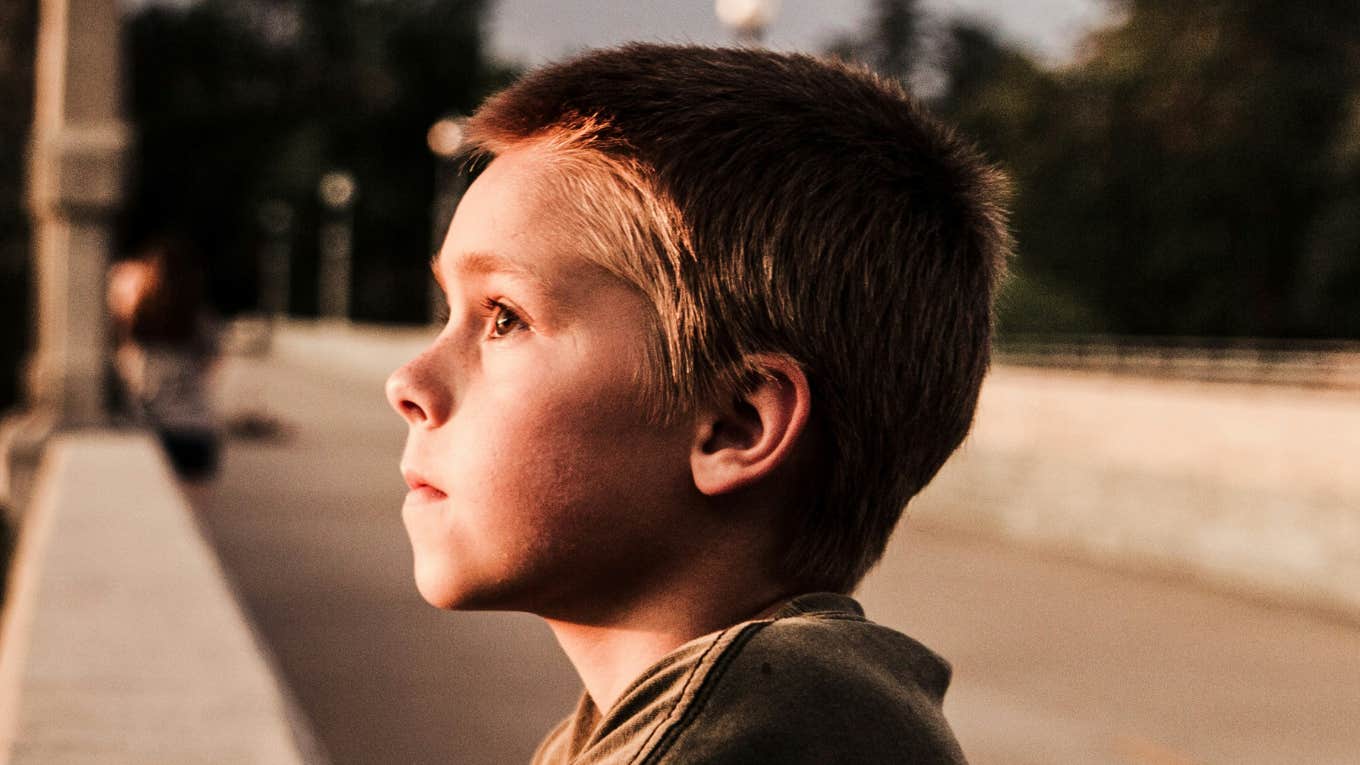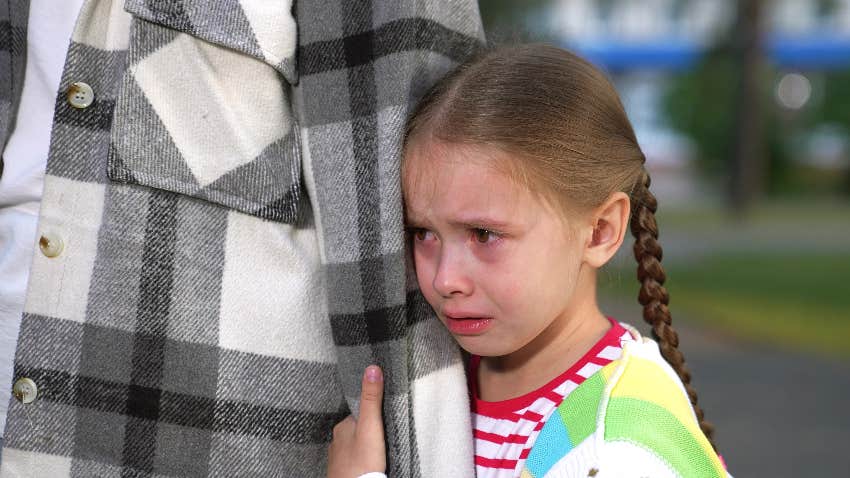If Your Parents Didn't Teach You These 3 Skills As A Child, You're Probably An Anxious Adult
Kids need to learn these things to exist in the real world as less anxious adults.
 Japeth Mast | Unsplash
Japeth Mast | Unsplash All parents can agree that they only want the best for their children. They want them to be healthy, strong, curious and have a million other positive attributes. But what do you do as a caretaker when you suspect your child might be having irrational reactions and responses to daily life when you think they might be experiencing anxiety or anxious thoughts?
And not just "normal" amounts of anxiety (say some jitters leading up to back-to-school season), but enough that it's started to get your attention and make you question whether or not it's time to see a therapist or child psychologist.
Since it can be challenging for most people — let alone a child — to describe what it feels like to have anxious thoughts, we reached out to Dr. Kirsten Cullen Sharma, a clinical psychologist, and neuropsychologist based in New York, for some guidance.
"Anxiety is a clinical condition, so to have an anxiety disorder a child must meet criteria for clinical significance," Sharma explained. "In these cases, anxiety impairs a child's normal (or would-be normal) functioning daily."
If your parents didn't teach you these 3 skills as a child, you're probably an anxious adult:
1. How to think and speak positively about yourself
Does your little one engage in a lot of negative self-talk and frequently feel they're bad at things, like schoolwork, sports, or similar activities? While this certainly isn't a clear indication, it could be something you want to pay attention to.
Belief in negative thoughts (ex. "I'll never pass the test because I'm so bad at math") can affect self-esteem and lead to larger issues like anxiety.
2. How to handle tough situations
 DREAM INSPIRATION / Shutterstock
DREAM INSPIRATION / Shutterstock
"Anxiety also presents in different forms. Common ways that anxiety manifests is avoidance behavior, worries, self-doubt, excessive fears, and social anxiety," said Sharma.
Take a look at the sorts of things they're worried about and the severity of those worries. Is it hindering them from other aspects of life? Are they avoiding certain school activities because they're worried about something bad happening? Or worried about what the other kids might think?
Keep in mind that it's healthy to worry about certain things, so you'll have to use good judgment. "In many cases, feeling anxious or nervous is normal."
3. How to be by yourself
"When children have anxiety about sleepovers, you are likely to notice that the child has other worries or discomforts as well," noted Sharma. "Reflect to see if the child dislikes or worries about other social situations or situations where they are separated from their parents."
There's a lot you can do in this case, though treatment options are age-dependent. "A phased plan could be helpful where the child has friends over late, then a sleepover with one friend at their house a couple of times before having a sleepover at a friend's house."
This isn't something that should be forced, though. "It is important to make decisions about sleepovers, and other anxiety-provoking situations, based on where the child is at and how significant anxiety is.
If they can tolerate distress and work through it, that can be very helpful. But putting a child in a situation where they will become flooded with anxiety can be harmful."
If you or somebody that you know is experiencing a mental health crisis, there is a way to get help. Call SAMHSA’s National Helpline at 1-800-662-HELP (4357) or text "HELLO" to 741741 to be connected with the Crisis Text Line.
Rebecca Brown is a writer, editor, and producer with experience in lifestyle, wellness, and parenting editorial. She has been published in the San Francisco Chronicle, TeenVogue, Glamour, Popsugar, MTV, Seventeen, GAP, Refinery29, and more

